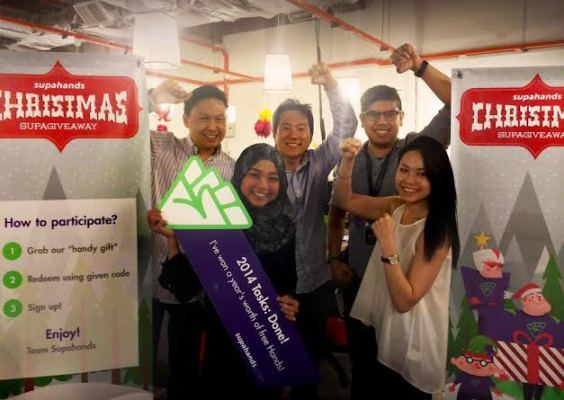Southeast Asia is the second-largest outsourcing destination in the world, but a new company called Supahands wants to help locals by bringing virtual assistants to the region. Based in Malaysia and Singapore, the startup plans to expand to Hong Kong, Taiwan, Bangkok, and Australia.
Co-founder Mark Koh first thought of launching a virtual assistant startup for Asia in 2010, but decided the market wasn’t ready at that point. Born in Malaysia, but raised and educated in Australia, Koh instead founded a Melbourne-based company called Global Virtual Support that hires Southeast Asia-based employees to handle customer service requests for medium-sized companies.
Last year, however, Koh decided that it was the right time to revisit his original idea. Based in Malaysia, Supahands launched in December. The startup, which is bootstrapped, says it currently has 500 active users.
One of the main things that has enabled Supahands to launch is the rapid increase of smartphone use in Southeast Asia. Most of the startup’s clients use mobile phones to enter tasks, get matched with a virtual assistant, and check on the progress of projects, says co-founder Andrew Tan.
Though 60% of requests are in English, Supahands caters to local customers with assistants who speak Mandarin, Cantonese, Tamil, and Malay, among other languages and dialects.
The startup currently has six full-time assistants, called “agents,” based in an office in Kuala Lumpur, but as the service scales up within Malaysia and Singapore, Supahands plans to train part-time employees who will work from home.
Some clients hire an assistant for a one-time program, like vetting cleaning services, but these turn into recurring tasks, says Tan. For example, a property owner who lives abroad and hires a cleaning team might ask Supahands’ agents to make sure that they show up at the right times. One of the biggest tasks Supahands has handled so far was planning a honeymoon.
Supahands’ chief competitors include freelancing sites like Odesk and Freelancer.com. Tan argues that Supahands makes hiring a virtual assistant easier by training and working closely with its assistants so clients don’t have to interview them.
All communication is done through Supahands’ online dashboard, instead of directly between clients and assistants, which Tan says helps with quality control.
He adds that Supahands’ biggest rival is actually the self-sufficiency of potential clients.
“In Southeast Asia, most locals have the mentality that they want to do everything by themselves, so our challenge is to help them see that they can outsource these tasks and save time for something more valuable,” says Tan.
